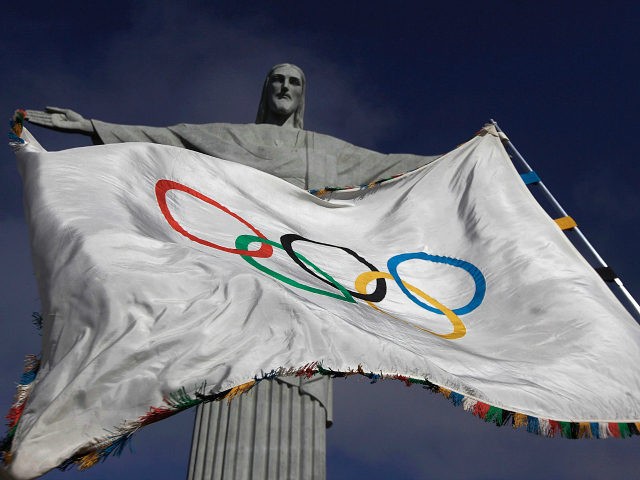The government of Brazil has assured the world it will put on a spectacular show during August’s Summer Olympics in Rio de Janeiro despite the many problems casting a shadow over preparations: a Zika epidemic, rampant political corruption, an economic collapse, and now a new crime wave threatening tourists and athletes alike.
On Sunday morning, six-time Australian Paralympian Liesl Tesch and sailing teammate Sarah Ross were mugged in broad daylight, her bicycle stolen after she proved to the robber she did not have any money on her.
“The Paralympic sailors were confronted by the men in broad daylight, it was 7.30 in the morning, and right near their accommodation. There were people around but no-one came to their assistance,” Australian Olympic team Chef de Mission Kitty Chiller said in a statement demanding Rio de Janeiro’s government do more to protect against the violent attacks of athletes currently in the city to train for the Olympic Games. Australia is demanding that the special forces reserved to be deployed in August during the Games be given missions on the ground sooner as athletes are already there and training.
“This is not an isolated incident, athletes have been mugged while training and competing in Rio test events and we want our athletes protected,” Chiller added.
The incident recalled statements made earlier this year by Brazilian soccer star Rivaldo, in which he warned tourists to stay away from the Olympics. “You’ll be putting your life at risk here. This is without even speaking about the state of public hospitals and all the Brazilian political mess,” he warned. “Only God can change the situation in our Brazil.”
The attack on Tesch and Ross was the first in a series of headline-generating crimes that Sunday. Later in the day, an estimated fifteen gunmen attacked Rio de Janeiro’s Hospital Souza Aguiar, a hospital designated to treat Olympic athletes and tourists alike. The gunmen stormed the hospital to liberate a drug kingpin known as “Fat Family,” who was in the hospital being treated for gunshot wounds. In helping “Fat Family” escape, the criminals killed a patient and left a nurse and policeman injured.
Police are now struggling to find the liberated 28-year-old criminal, whose whereabouts police have little leads toward finding.
A major economic crisis has left the police in Rio de Janeiro state with their hands tied. The governor of the state, Francisco Dornelles, announced on Saturday that he was declaring an economic state of emergency, warning that a “public calamity” was imminent if Brasilia did not send him $900 million in emergency funds. For months, Rio state has not paid teachers or other public servants and has been unable to properly stock police stations with office needs.
Dornelles made clear that the Rio Olympics would go on but at the expense of paying for “essential public services.” Without emergency funding, he warned, Rio could expect “a total breakdown in public security, health, education, mobility and environmental management.”
Both the International Olympic Commission (IOC) and the mayor of Rio de Janeiro, Eduardo Paes, have warned this emergency situation will not affect the Olympic Games. “The IOC is very calm regarding the preparations,” Paes said Tuesday. “We are finalizing the Velodrome works in the Olympic park. Everything is well on its way.”
At least one Olympic project, however, does not work: the subway line designed to take people to the Olympic park. According to the Washington Post, Rio de Janeiro officials insist the subway line will be completed in time for the games, with a scheduled completion date four days before the Games begin. This leaves little to no time to test the train systems and work out any flaws that may come from an initial run. Many experts also doubt that workers in the city will hit that deadline, potentially causing a traffic disaster as passengers who would have otherwise used the subway are forced to drive to the venue.

COMMENTS
Please let us know if you're having issues with commenting.